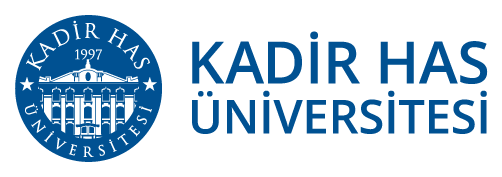Our University adopted the zero-waste regulation, started this critical process, and supported the efforts in this respect through special equipment. Packaging waste is essential to the waste management process, and this waste is carefully sorted and managed accordingly. Paper & cardboard, plastic, metal, and glass packaging waste is collected in the form of three specially designed sets and processed in a way that is appropriate for recycling. This method makes it possible for the packaging waste to be reused without any harm to nature.
We saw pretty impressive results in 2023 with respect to the recycling percentages concerning packaging waste as achieved by our University. The percentage of paper waste recycling reached 22%, while the recycling of recyclable non-paper waste (glass, plastic, metal, mixed) was recorded as 63%. In addition, it was seen that the percentage of hazardous waste recycled was 15%, and the waste not recycled was 0%.
These zero-waste efforts are not limited to the colorization and special equipment pursuant to the requirements of the applicable regulations. Our University organizes various awareness campaigns to raise the awareness of society for zero waste management and provide the students with sustainability-related training accordingly. These training programs aim to ensure that the university and the general public adopt this philosophy of zero waste.


Having established a zero-waste system, our University attained a vital goal to minimize the amount of waste released to the environment and maximize the recycling percentage.
The courses and projects within the organization of our University in connection with this goal are detailed below.
- Projects
- Berkay Ayhan “Household Debt in Turkey: Reasons, Patterns, Results, and Public Policy Suggestions”, a TÜBİTAK 3501 project
- Dr. Nurhan Davutyan’s articles about a Tübitak 1001 Project and Outputs - Sustainability in agriculture manufacturing in the last period of the Ottomans and the early period of the Republic.
- Courses
- History of Modern Turkey: This course discusses the historical transformation of the manufacturing structures within the context of industrialization, focusing on consumption. In addition to the change in consumption habits, these processes’ environmental impacts are discussed within this course’s scope.
- KHAS 107 Design: The mandatory course of design for all the first-year students of the university under the Core Program deals with design and social relationships, and the different social facts and cases are discussed with the students at the seminars. Within this context, the students discuss responsible production and consumption, attracting attention to the waste of food and resources, and create designs about sustainable and ethical productions, the use of recycled and/or natural materials, and the production by local communities. Within the scope of this course, out of the student projects intended to provide a solution to a particular problem identified by the students at the campus and its surroundings, there are specific projects that focus on urban poverty; for example: identifying that there was a problem of too many disposable cardboard and plastic cups being used, a group of students designed a totem and displayed it at the campus, and another group of students designed new-year decorations from the disposable cups used in the children workshops at the Neighborhood House and decorated the new-year tree together with the children and the Environment & Zero Waste Club at the University, and another group designed shelters for cats living at the campus making use of the waste cardboards used by the students from the Department of Art and Design in the studios, and some other groups made efforts concerning the cultural heritage, and developed projects as intended to increase the recognition of the products produced in the Neighborhood, and those manufacturing them.
- KHAS 105 Universal Values and Ethics: The module on Ecologic Crisis and Coexistence of Species helps the students to develop a critical point of view about production and consumption in the context of ecological crisis and questions the possibilities of sustainable production and consumption.
